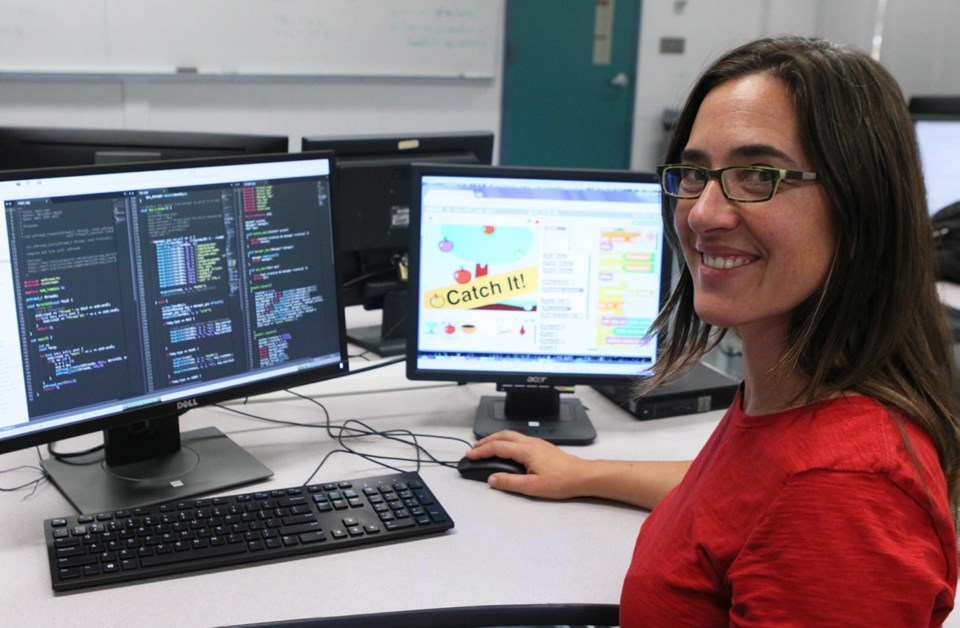Learning about basic programming before booting up a computer is like learning a little auto maintenance before driving, says a Vancouver Island University computing science professor.
“You should know some basics — like the need to change the oil, fill up with fuel or how to check the radiator,” Sarah Carruthers said. “Having a rudimentary understanding of how our tools work makes us better users of those tools.
“I really feel computers are the same.”
So on Thursday, she and several VIU computing science students met with members of the Nanaimo Coding Club for a basic lesson in writing computer code.
“Imagine Grade 5, 6 and 7 kids in a room with computers and spinny chairs,” Carruthers said. “The energy level is going to be pretty high.
“But, amazingly, they found writing programs and making games was more engrossing than the spinny chairs.”
The Nanaimo Coding Club was created in partnership with the University of Victoria’s Science Venture program, which offers hands-on learning opportunities through camps, workshops and other events.
Melisa Yestrau, the program’s director, said the computer sessions are always a big hit — so much so that registration often fills up within a day of opening.
Yestrau said knowing how to use a computer isn’t the same as knowing how a computer works.
“Kids are going to be using technology anyway, so how about we step it up a level?” she said. “We can have our kids playing video games, or we can have them creating their own video games.”
Carruthers said computer science also teaches skills valuable in just about every field. Kids learn how to break problems down into smaller segments and how to arrange answers in an order that will come up with solution. On Thursday, for example, she had club members write down the necessary steps to be completed to get to school. Those steps were then mixed up and the kids were told to put them back in a logical order.
“Learning code is much the same idea, except we are writing steps that a computer can understand,” Carruthers said.
Learning the basics of how computers work is also a good way to learn how to use them responsibly, she said.
“We can actually talk to kids about what does it mean to safely transmit data and what does it mean to store information and where does the computer keep it,” said Carruthers. “It may have an impact on their behaviour and how they use computers in the future.”
• The Nanaimo Coding Club will run until Nov. 9. For more information, go to scienceventure.ca.



